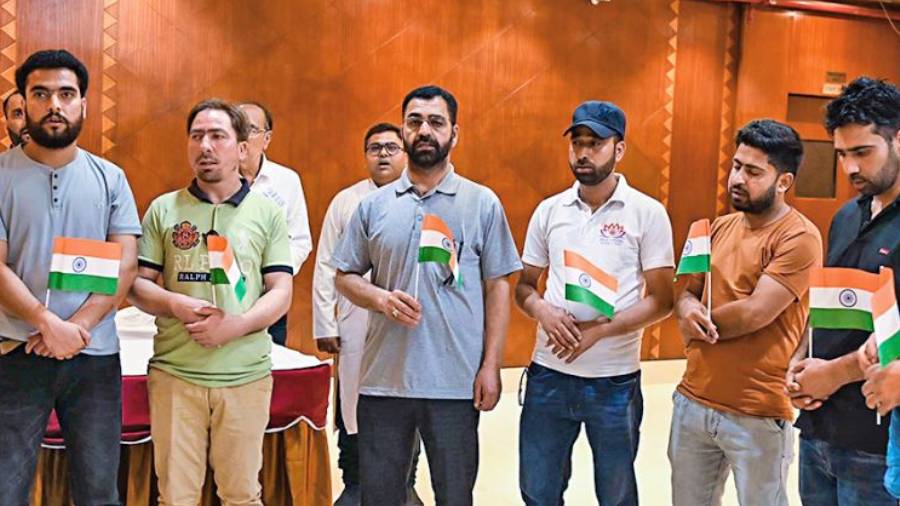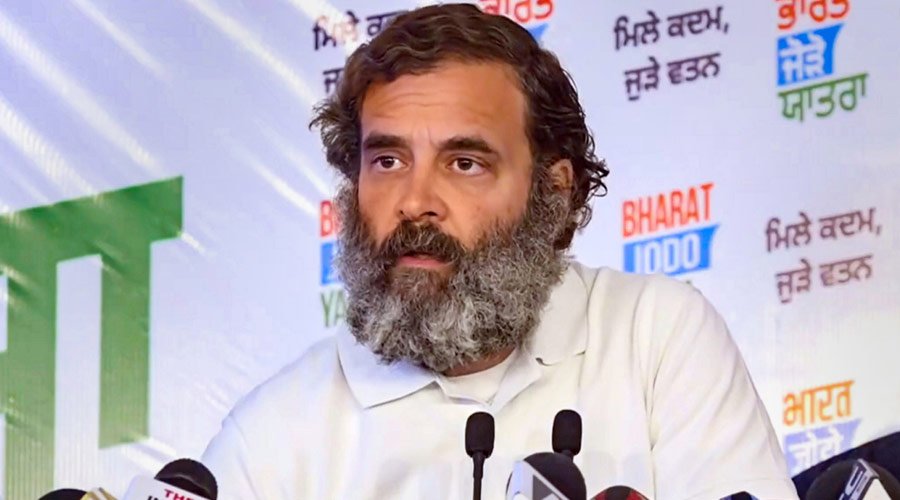Kashmir’s integration with India remains incomplete without smooth business between Kashmiris and the rest of the country, a process that is now vitiated by infrastructural challenges and suspicion, traders from the Valley told their Bengal counterparts here on Sunday.
The lack of a sound storage infrastructure and limited connectivity with the rest of the country means Kashmir’s apples lose out in the pan-Indian market. Add to this the challenge posed by the “fake narrative” that Kashmiri businessmen earn money to harm India, members of a delegation of farmers and traders in apples and dry fruits from Kashmir said.
“There’s a carefully crafted narrative that money made from apple farming in Kashmir is used to harm India,” Nazir Ahmed Khan said.
“It (the alleged disloyalty of Kashmiri traders) is a fake narrative created by vested interests. You can see TV news channels and anchors with the single agenda of bashing Kashmiris,” Khan, leader of the Kashmiri delegation that is on a 10-day visit to Bengal to interact with local farmers and traders and explore avenues of collaboration, told The Telegraph.
The visitors interacted with representatives of local traders’ associations and social workers at a banquet in central Calcutta on Sunday evening. Its members spoke to this newspaper on the sidelines of the event.
Khan is the founder of Qafilla-E-Mohabbat, a non-profit that works for the underprivileged in Kashmir and for the “integration of Kashmir with the rest of India”.
“National integration means both social and economic integration. They are connected,” Khan said at the meeting.
He urged members of traders’ associations to buy apples and dry fruits from Kashmir in larger quantities.
Senior representatives of the Calcutta Fruit Merchants Association said that despite their superior quality, Kashmiri apples were losing out to apples from Himachal Pradesh and imported apples mainly because of the lack of storage facilities in the Valley.
The Srinagar-Jammu national highway is the only link between Kashmir and the rest of India. The road is often shut for security reasons or heavy snowfall. Railway connectivity has remained a work in progress for years, and air transport is too costly for small-time traders.
“One sapling takes around 10 years to start bearing fruit. They need tending to, almost like babies do,” Ali Mohammed, an apple farmer who owns a fourth of an acre in Budgam, told this newspaper.
“The production cost for one carton of apples, weighing 16kg, is around Rs 450, if you take in all the factors, including the wages of the farm workers.”
Mohammed added: “Last year, a box fetched Rs 458 at the local mandi. That means (an earning of) Rs 8 for 16 kilos. The price of one kilo of apple in the retail market ranges between Rs 150 and Rs 200. The huge difference goes into the pocket of the middleman.”
The traders added that they also face a “unique challenge” — a constant suspicion about their loyalty to India.
“We are simple traders who want to make a decent living. In swathes of north India — Punjab, Himachal Pradesh, Uttarakhand and other places — our transporters are intimidated. Conducting business becomes doubly difficult under such a situation,” said Zahoor Abbas, a dry fruit trader.
The delegation has visited Birbhum and Murshidabad, where its members interacted with local farmers.
“We discussed the common challenges. Farmers here too face the problem of middlemen,” Khan said. In the coming days, the delegation will have formal meetings with the fruit merchants’ association and other chambers of commerce based in Calcutta.
“We want to empower Kashmiris. If Kashmir is empowered, India is empowered,” said Satnam Singh Ahluwalia, chairman of the IHA Foundation and general secretary of the United Interfaith Foundation, the two bodies that have organised the visit by the Kashmiri team.
“We know that the growth of our country can only come from the collective growth of every region,” Satnam added.
A Qafilla-E-Mohabbat delegation had visited Bengal last year as well to understand the state’s panchayat system. The current delegation contains multiple members of panchayat bodies in Kashmir. The delegation has also been interacting with self-help groups in Bengal to understand their functioning.












